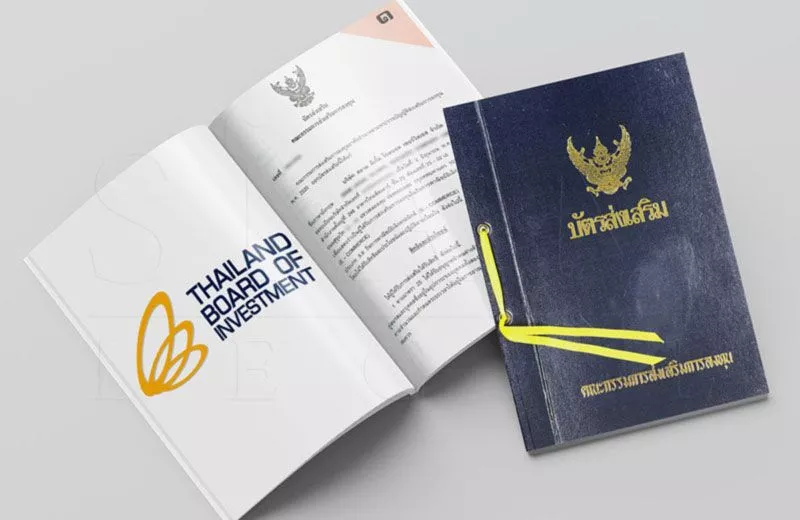Mergers & acquisitions in Thailand landscape is an important aspect of the country’s economic growth, especially in industries like manufacturing, finance, and consumer goods. M&A transactions can involve foreign and local entities looking to either expand or consolidate their operations in Thailand. However, the process requires careful navigation through legal frameworks, due diligence, and regulatory approvals. This guide provides a comprehensive look at M&A in Thailand, covering legal structures, key industries, regulatory requirements, and challenges.
1. Types of Mergers and Acquisitions
M&A transactions in Thailand typically take one of the following forms:
a) Mergers
In a merger, two or more companies combine into a single entity. Thailand’s Civil and Commercial Code and the Public Limited Companies Act regulate mergers, ensuring that all parties comply with shareholder approvals and reporting requirements.
b) Acquisitions
Acquisitions occur when one company acquires a controlling interest in another. In Thailand, acquisitions can either be asset purchases or share purchases. A share acquisition transfers ownership of the company’s shares, while an asset acquisition involves buying specific assets or business units.
- Share Purchases: In a share purchase, the acquiring company buys the shares of the target company, assuming its liabilities and assets.
- Asset Purchases: This involves buying only certain assets or divisions of the target company, leaving the liabilities behind, which can be an advantage in cases where the buyer wants to avoid legal or financial risks associated with the target.
2. Legal Framework for M&A in Thailand
M&A transactions are governed by several key laws and regulations in Thailand, which ensure transparency and protect stakeholders:
a) Foreign Business Act (FBA)
The Foreign Business Act (FBA) restricts foreign ownership in certain industries, requiring a Foreign Business License (FBL) if a foreign entity wishes to hold more than 49% of shares in a restricted sector. This is particularly relevant for M&A transactions involving foreign acquirers.
b) Public Limited Companies Act
This act governs mergers and acquisitions involving public companies, requiring shareholder approval and the submission of specific documents to the Ministry of Commerce (MoC). The process involves ensuring that minority shareholders are protected, especially in hostile takeovers or acquisitions involving significant change in management.
c) Securities and Exchange Act
M&A transactions involving publicly listed companies fall under the Securities and Exchange Commission (SEC). The SEC regulates tender offers, disclosures, and reporting obligations to ensure market transparency. For share acquisitions exceeding certain thresholds (e.g., 25% of the voting rights), a mandatory tender offer is required.
d) Antitrust and Competition Laws
Thailand’s Trade Competition Act (2017) prevents anti-competitive practices during M&A transactions. The Trade Competition Commission (TCC) evaluates whether the transaction could create a monopoly or significantly reduce competition in the market. Companies must notify the TCC for approval if a merger or acquisition exceeds specific market share or asset value thresholds.
e) Tax Considerations
M&A transactions often trigger various taxes, including corporate income tax, withholding tax, and value-added tax (VAT), depending on whether it is a share purchase or asset purchase. Tax efficiency and structuring play an important role in cross-border acquisitions, particularly for foreign acquirers.
3. M&A Process in Thailand
The M&A process in Thailand generally involves several key steps:
a) Pre-Transaction Planning
Before initiating an M&A deal, it’s crucial to develop a strategic plan, including identifying the target company, assessing the financial impact, and conducting a high-level risk analysis. Foreign investors often work with legal and financial advisors to ensure compliance with Thai laws, particularly those related to foreign ownership.
b) Due Diligence
Due diligence is a critical step in any M&A transaction. It involves a thorough examination of the target company’s financial records, contracts, intellectual property, employee liabilities, and regulatory compliance. In Thailand, due diligence is particularly important in determining the company’s legal standing, especially for foreign buyers navigating the FBA and labor laws.
c) Valuation
Accurately valuing the target company is essential in determining the purchase price. Valuation in Thailand is typically conducted using methods such as discounted cash flow analysis, comparable company analysis, and precedent transactions. Given the differences in Thai and foreign accounting standards, expert guidance is often necessary to reconcile financial statements.
d) Negotiation and Structuring
Once due diligence is completed, the acquirer and target company negotiate terms such as purchase price, payment terms, representations, and warranties. Structuring the transaction involves determining whether it will be a share purchase, asset purchase, or merger, and ensuring tax-efficient planning.
e) Regulatory Approvals
Regulatory approvals, particularly from the Ministry of Commerce and the Trade Competition Commission, are often required for certain transactions. The approval process can take several months and involves submitting detailed information about the transaction, including its potential economic impact.
f) Closing the Deal
After receiving the necessary approvals and finalizing the legal agreements, the transaction is closed. The assets or shares are transferred, and the buyer assumes control of the target company. In some cases, post-merger integration is crucial for aligning the operations, culture, and management of the two companies.
4. Key Industries for M&A in Thailand
Several industries in Thailand attract significant M&A activity due to their growth potential and strategic importance:
a) Financial Services
Thailand’s banking and insurance sectors are highly regulated, with foreign ownership limits under the Financial Institutions Business Act. However, M&A activities have been increasing in recent years, driven by consolidation and the expansion of digital banking.
b) Energy
The energy and utilities sector, especially in renewable energy, has been a key focus for M&A in Thailand. Government policies promoting clean energy and infrastructure development make this a lucrative sector for both domestic and foreign investors.
c) Healthcare and Pharmaceuticals
With an aging population and Thailand’s position as a medical tourism hub, the healthcare and pharmaceutical sectors are experiencing growing M&A activity. Investments in hospitals, clinics, and pharmaceutical companies have been significant, as investors seek to capitalize on the demand for quality healthcare services.
d) Consumer Goods
Thailand’s growing middle class and increasing domestic consumption have driven M&A in the consumer goods and retail sectors. International brands often acquire Thai companies to enter the local market or expand their presence across Southeast Asia.
5. Challenges and Risks in M&A Transactions
Despite the opportunities, M&A transactions in Thailand come with several challenges:
a) Foreign Ownership Limits
Foreign investors face restrictions on owning more than 49% of companies in certain sectors under the FBA. This can complicate acquisitions and requires careful structuring to avoid non-compliance with Thai law.
b) Cultural and Managerial Integration
Post-merger integration can be challenging, especially when the companies involved have different corporate cultures or management styles. Aligning the operations, goals, and organizational structure of both entities is essential to a successful merger or acquisition.
c) Regulatory Delays
Obtaining approval from regulatory bodies can be time-consuming, particularly for large transactions. Delays in approval can lead to uncertainty and increased costs, especially in sectors like telecommunications or finance.
d) Economic and Political Risks
Thailand’s political landscape and economic conditions can affect M&A transactions. Currency fluctuations, changes in government policies, and political instability may impact the valuation and success of the deal.
Conclusion
Mergers and acquisitions in Thailand provide significant opportunities for businesses looking to expand their operations or enter new markets. However, navigating the legal and regulatory landscape requires careful planning, especially for foreign investors. By understanding the legal frameworks, industry trends, and potential challenges, companies can better position themselves for successful M&A transactions in Thailand’s evolving economic environment. Legal and financial advisory services are crucial to ensure compliance, mitigate risks, and maximize the value of the transaction.











